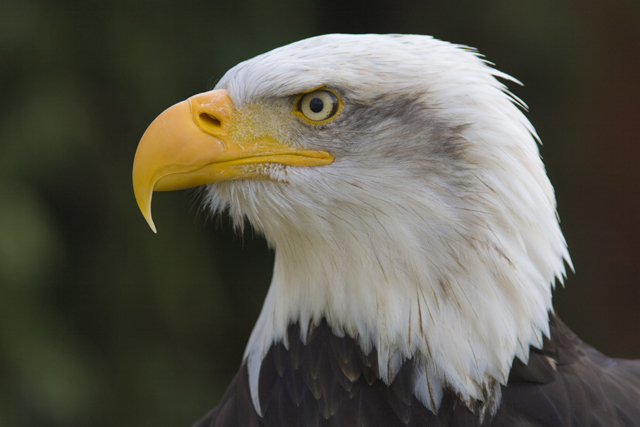The Osage Native American Nation is protesting proposed wind turbines that will kill bald eagles and other birds the nation holds sacred.
The Wind Capital Group plans to place 94 wind turbines in Osage County, Oklahoma. The turbines would be in the heart of historical Osage Nation lands where many Osage still live and honor tribal traditions. According to Osage lore, the eagle is the only creature than can look God in the eye, but the proposed wind turbines would likely kill several of the scarce and protected eagles each year.
Turbines’ Deadly Toll
Scott Bighorse, Assistant Principal Chief of the Osage Nation, says he hopes conservationists and the U. S. Fish and Wildlife Department are paying attention to the bird kills association with wind turbines.
The U.S. Fish and Wildlife Service (FWS) reports wind turbines kill at least 440,000 birds each year in the United States. Bighorse says the Osage Nation opposes wind turbines killing golden and bald eagles on or near Osage lands.
The Wind Capital Group applied with the FWS for a permit allowing its turbines to kill up to 120 bald eagles over the lifespan of the wind farm. The FWS estimates the turbines will kill approximately three eagles each year, plus additional birds and bats.
Sacred Lands Despoiled
Bighorse said the turbines will despoil lands the Osage consider sacred. The turbines would be placed on lands the Osage used for buffalo hunts and other traditional activities. Bighorse reports more than 270 artifacts of religious significance have been found by the Osage on the proposed wind turbine sites.
Bighorse also questioned the FWS estimate of three eagle kills per year. Bighorse said the FWS is likely underestimating the eagle death toll and there are no procedures in place to accurately count the number of eagles killed by the turbines each year. Once the permit is granted, Bighorse worried, there will be no real limitations on eagle kills.
Disparity in Rights
Bighorse pointed out federal law prevents the Osage from using eagle feathers for religious and traditional purposes, yet the federal government is considering allowing a St. Louis wind power company to develop sacred lands and kill more than 100 bald and golden eagles.
“We are required to submit a permit request to possess the sacred feathers of eagles.” said Bighorse. “The wait time to acquire an eagle feather has grown from two to six years.”
Not only are the Osage prohibited from taking an eagle for religious and ceremonial purposes, they are also prohibited from using the feathers of eagles that have died of natural causes.
“If we were to find an eagle dead, we are not allowed to take it for our ceremonial use. It is illegal,” Bighorse explained.
The federal restrictions have made it difficult for the Osage to have enough eagle feathers for ceremonial dances, funerals, and spiritual uses. Bighorse says tribal members resent wind power developers gaining power to kill so many eagles on and near their lands.
“We feel this is a violation of our religious rights,” said Bighorse. “We are not against wind energy, or the turbines themselves, but are opposed to the location that has been selected for them, because of the spiritual nature of the land and the danger to our sacred birds.”
Another Setback for Osage
Bighorse noted the Osage once numbered 60,000 and roamed freely in the Great Plains. The federal government restricted them to Oklahoma, and their numbers fell to only 2,221 tribal members in 1906.
Bighorse said preserving the Osage Nation’s heritage, spiritual practices, and sacred grounds should be just as important as 94 wind turbines. He noted the Osage are trying to maintain the delicate ecology of the land, which all people—Osage and non-Osage alike—should support.
“We would like to see the U.S. [Fish and Wildlife Service] Wind Capital Group, and the Osage come together and plan the best locations for the turbines to avoid the killing of eagles and imposing on sacred sites,” Bighorse said.
Karen Dove ([email protected]) is a freelance writer in Bradenton, Florida.




